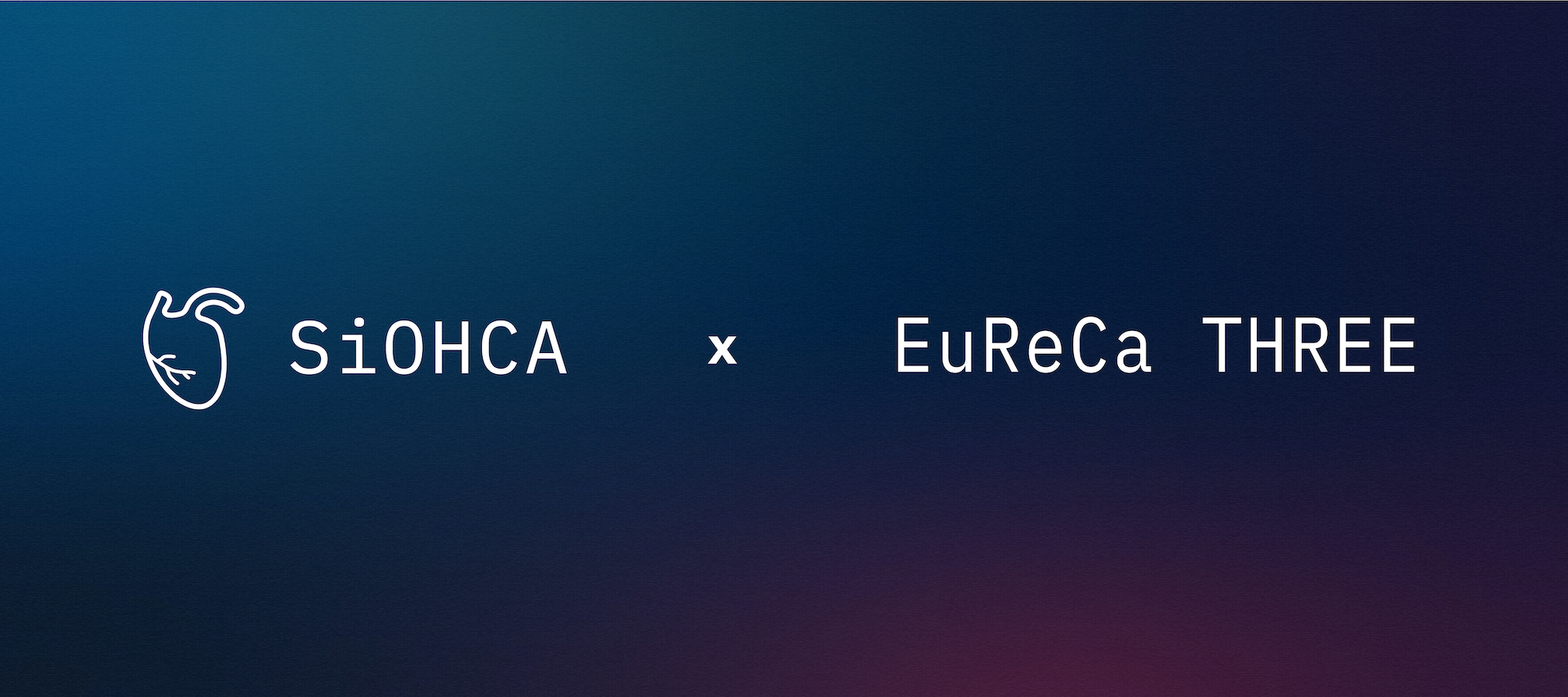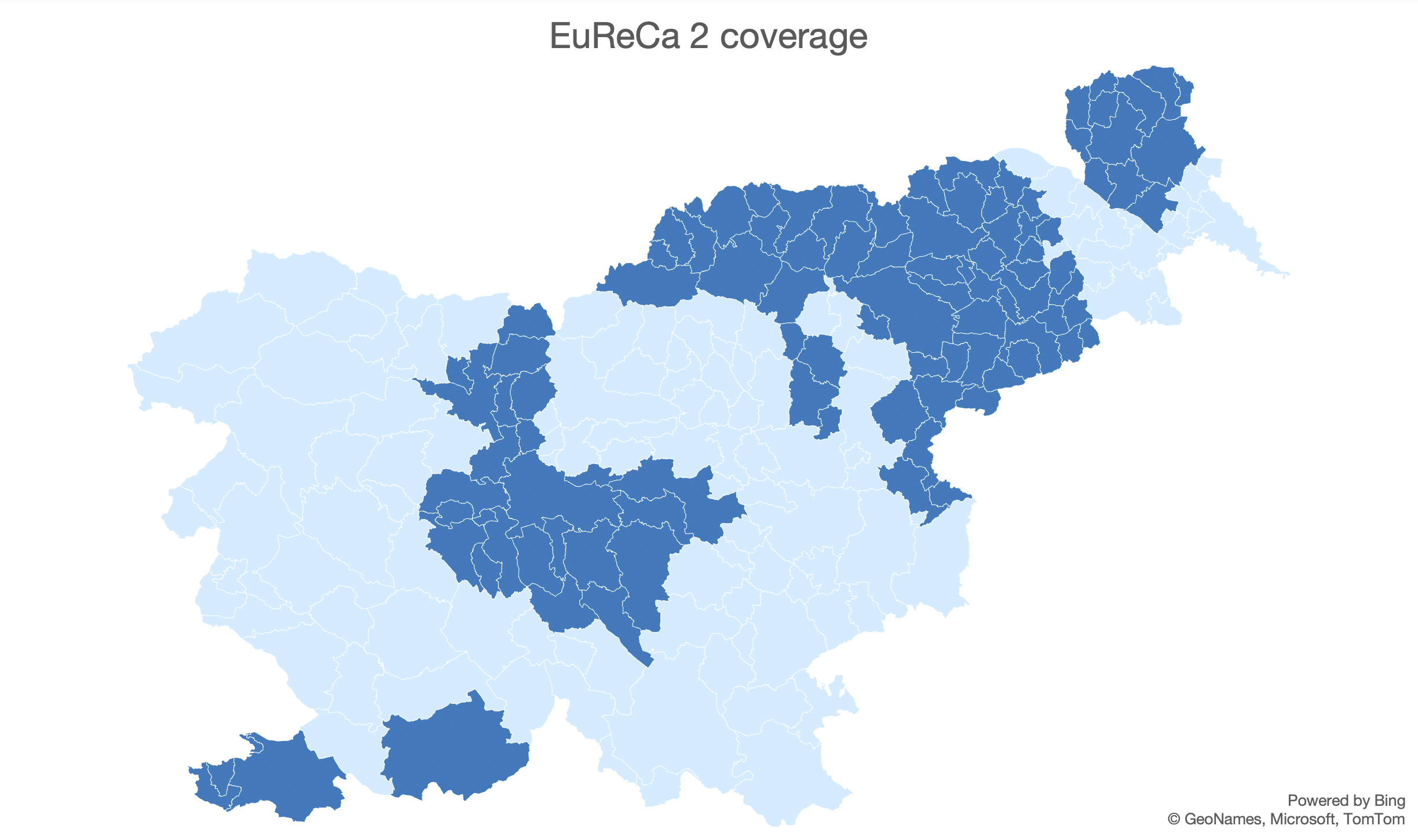
Our mentor Matej Strnad was selected to lead EuReCa 3 study for Slovenia by Slovenian Resuscitation council (SloRS). With the EuReCa 2 lead by Andrej Markota.
We are thankful for all the work that was already done and hope to help digitalise the process of data gathering. We would also like to see this as the first step in setting up a working 24/7 cardiac registry in Slovenia, that would allow us to finally catch up with other countries around the world.
What is EuReCa 3?
EuReCa is a project of the European Resuscitation Council (ERC). In 2007, the ERC initiated a campaign for Europe-wide collaboration in a European registry to record and analyse cases of cardiac arrest. The establishment of a European resuscitation registry is intended to allow international analysis of resuscitation treatments in different emergency service systems. EuReCa is intended both to offer existing registries an option to collaborate internationally, providing a platform for joint scientific activities, and also to offer additional countries and regions access to the scientific opportunities available.
More about the history of the project can be found on their webpage.
What advances were made by the previous studies?
Read about the studies published by clicking on the sources bellow.
- GRÄSNER, Jan-Thorsten, et al. Survival after out-of-hospital cardiac arrest in Europe-Results of the EuReCa TWO study. Resuscitation, 2020, 148: 218-226.
- GRÄSNER, Jan-Thorsten, et al. EuReCa ONE 27 Nations, ONE Europe, ONE Registry: A prospective one month analysis of out-of-hospital cardiac arrest outcomes in 27 countries in Europe. Resuscitation, 2016, 105: 188-195.
- GRÄSNER, Jan-Thorsten; BÖTTIGER, Bernd W.; BOSSAERT, Leo. EuReCa ONE–ONE month–ONE Europe–ONE goal. Resuscitation, 2014, 85.10: 1307-1308.
How did Slovenia perform the last time around?
EuReCa 2 was prospective observational study that took place around Europe (28 countries) for three months between October and December 2017. Some of the countries have aggregated data for the whole country, and some only for smaller parts - one of those was also Slovenia, which covered roughly 1,2 millions of its' population (at that time the population of Slovenia was 2,1 millions) which is roughly 57 %.
EMSs that contributed data were Koper, Izola, Piran, Portorož, Kranj, Ljubljana, Litija, Celje, Slo. Bistrica, Maribor, Lenart, Koroška, Ptuj, Murske Sobota and Šmarje pri Jelšah.

During the study there were 261 calls with a suspicion of OHCA, 258 of which were actually confirmed OHCA. They performed CPR on 176 patients, others were dead on arrival. ROSC was achieved with 66 patients.
The aim of the study was to measure 30-day survival of the patients and survival to discharge. This was achieved by 20 patients.
Other important outcomes from the Slovenian data can be seen in the table bellow.
| Measure | Survival [%] |
|---|---|
| All patients with OHCA | 7.8 |
| Only patients that received CPR | 11.4 |
| Witnessed OHCA + bystander CPR + VF first rhythm | 32 |
Bystander CPR was 48.3 % (for all of the patients that the OHCA was recognised by bystanders).
We would like to thank Andrej Markota for sharing this data with our project.
New subpage announcement
We will be rolling out a subpage dedicated to everything related to EuReCa 3 study soon. There you will be able to find details of how we envision the data aggregation and how medical professionals can take part. We will also update you on the status of our system and maintain up to date instructions of how to use SiOHCA.
We look forward to working with Slovenian healthcare professionals, creating new and more detailed insight than ever-before!